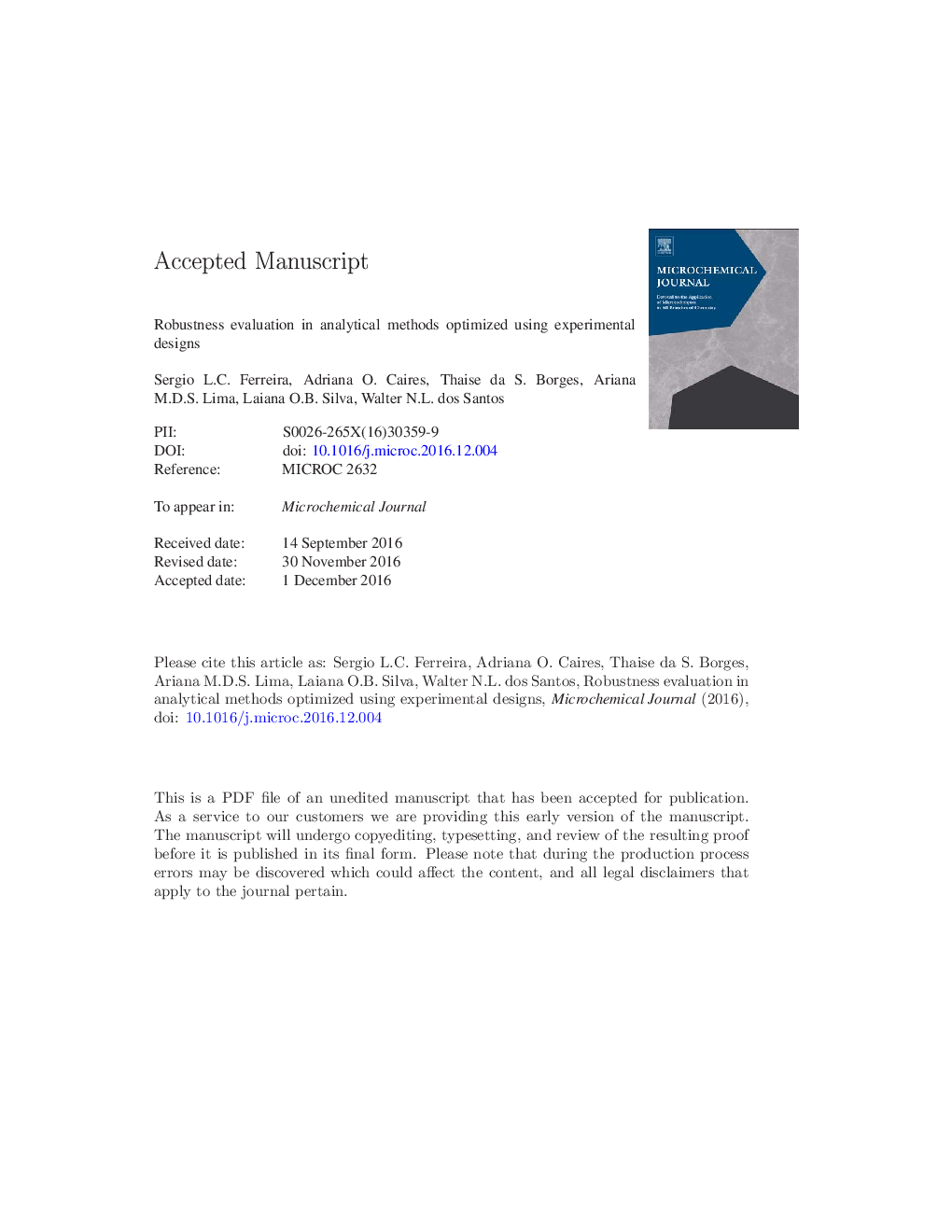| Article ID | Journal | Published Year | Pages | File Type |
|---|---|---|---|---|
| 5139247 | Microchemical Journal | 2017 | 29 Pages |
Abstract
Robustness has been defined as being the capacity of an analytical procedure to produce unbiased results when small changes in the experimental conditions are made voluntarily. The robustness tests are important because sometimes the analyst needs to modify one or a few chemical and/or instrumental parameters of a procedure, and this can only be done if these changes do not affect the method's accuracy considering the previously optimized results. The two-level full factorial designs would be the most recommended for robustness evaluations of analytical methods. However, for operational convenience, the fractional factorial designs are more often used. The Plackett-Burman designs have been one of the most employed in robustness evaluations. Some examples of robustness test applications in some analytical methods employing different chemometric tools are given. A discussion about the terms robustness and ruggedness is made. Seventy five references are cited.
Related Topics
Physical Sciences and Engineering
Chemistry
Analytical Chemistry
Authors
Sergio L.C. Ferreira, Adriana O. Caires, Thaise da S. Borges, Ariana M.D.S. Lima, Laiana O.B. Silva, Walter N.L. dos Santos,
